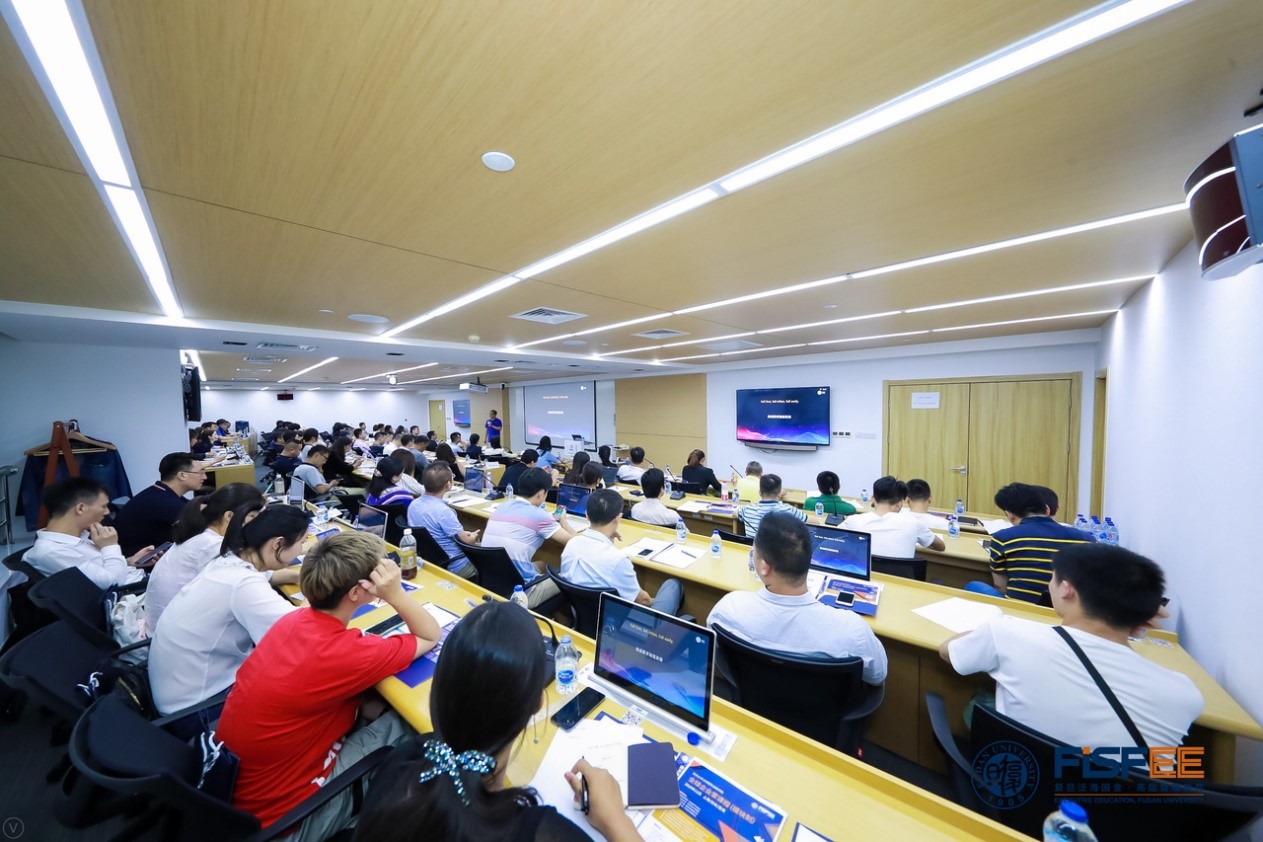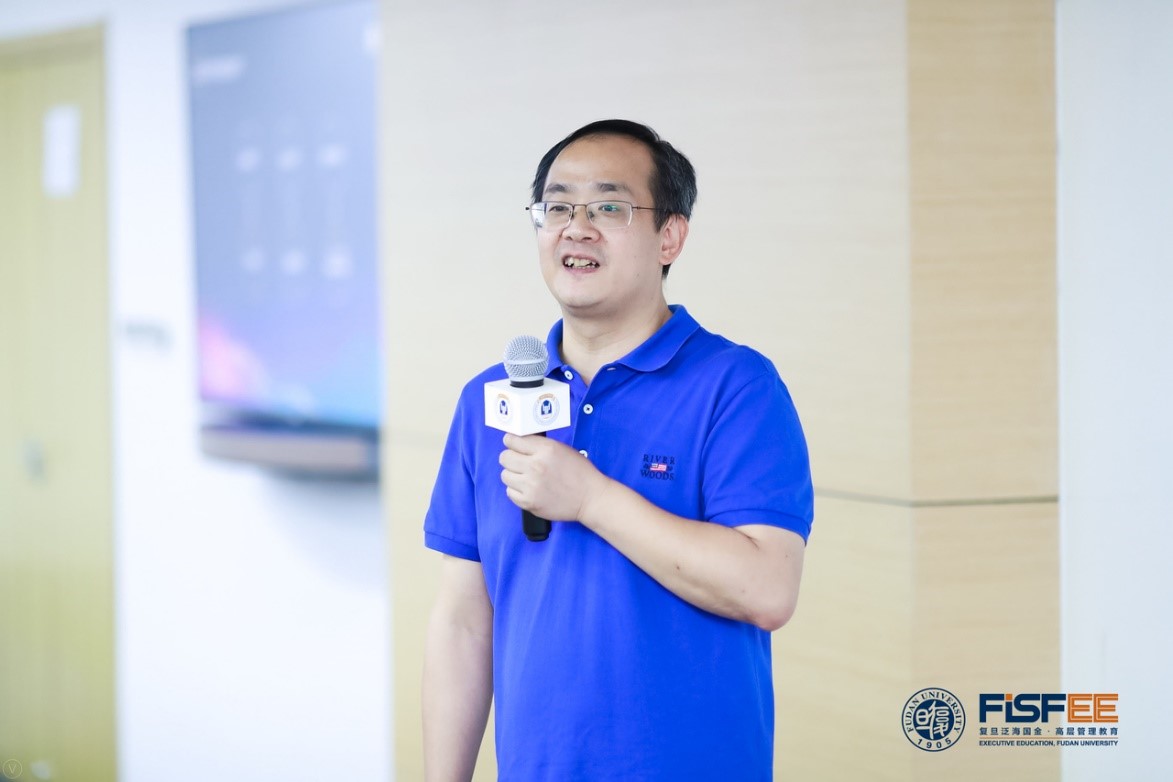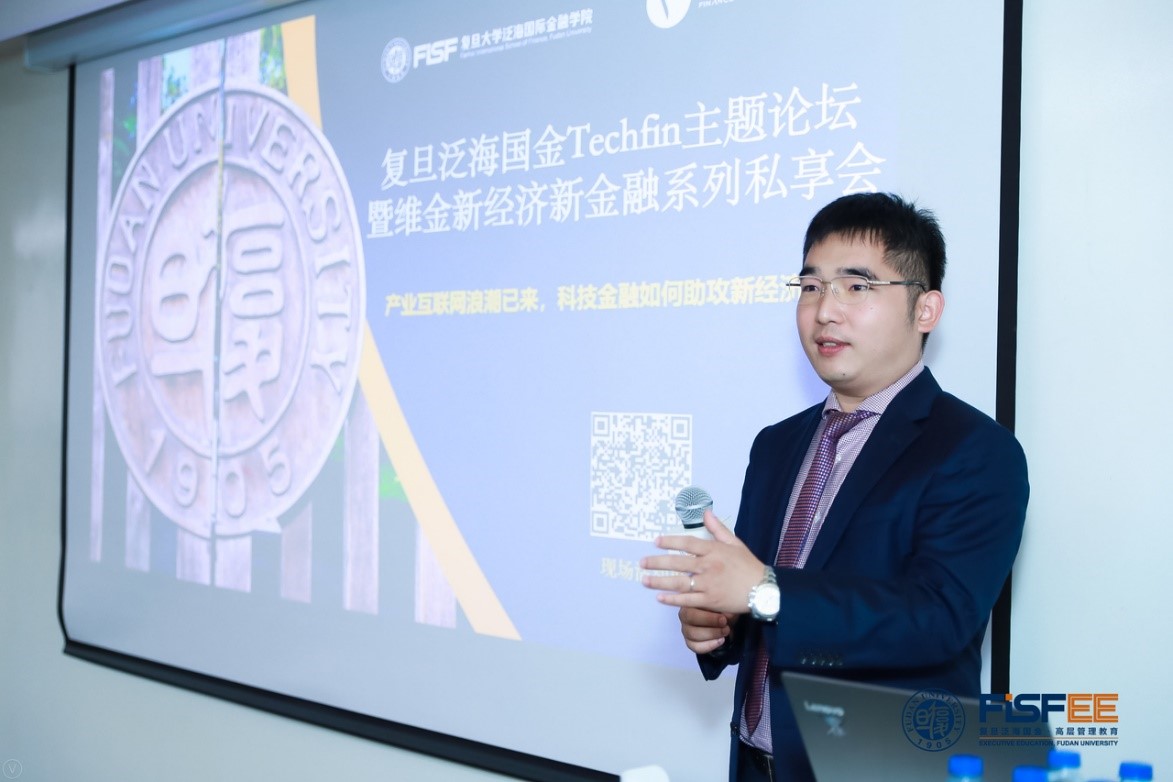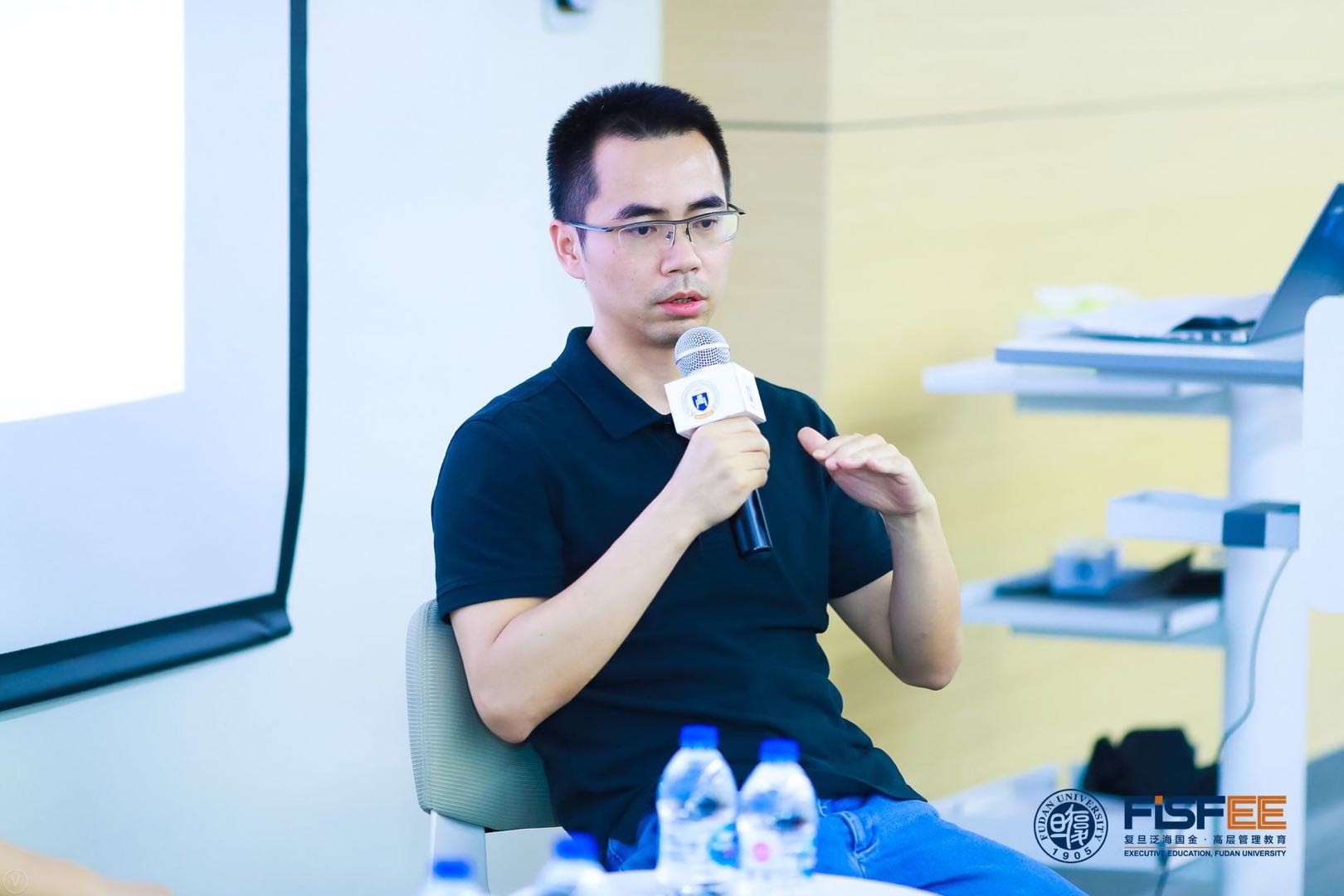
-
 86-21-63895588
86-21-63895588
-
 No.1, Lane 600, Nanchezhan Road, Huangpu District, Shanghai 200011
No.1, Lane 600, Nanchezhan Road, Huangpu District, Shanghai 200011
Release time:2019-08-08
On the hot summer night of July 31st 2019, the Executive Education program of Fanhai International School of Finance (FISF EE), Fudan University, held a Techfin forum on the FISF Huangpu Campus in the form of an open course.
This forum, titled, “In the Wave of the Industrial Internet, How Should Technological Finance Support the New Economy?”, was jointly organized by FISF and VFinance, a new leading financial technology operator. Forum attendance was high—over 100 new economic founders and senior executives managed to pack into the venue. Gao Huasheng, Associate Dean of FISF and Professor of Finance; Yu Qianghua, Industry Tutor of FISF and Founder and CEO of VFinance; and Liu Hao, Vice President of Business Division of Souche Financial, all shared insightful views from various aspects of technological finance, financial trends, and industrial platforms.

▲ FISF Techfin Forum Packed Out
Distinguished Guests Reveal Support of Technological Finance for the New Economy
To open the forum, Yu Qianghua, Industry Mentor of FISF and Founder and CEO of VFinance, delivered his keynote speech, “How Could Technological Finance Become the Key Driver to Accelerate Industrial Development?” Beginning with the famous opening line in A Tale of Two Cities, written by English writer Charles Dickens in the nineteenth century, “It was the best of times, it was the worst of times,” he expounded that the Information Age has made (and will continue to make) just as many changes to society as the transition from feudalism to the Industrial Age. These changes, involving the mass audience, new scenarios, social environment, and industrial environment, can be huge risks for many enterprises and individuals, but also a great opportunity for those who keep a conscientious mind.

▲ Yu Qianghua, Industry Tutor of FISF and Founder and
CEO of VFinance, delivering his keynote speech
Mr. Yu then introduced three engines that accelerate economic development—finance, technology, and commercial models—and discussed how to counter the challenges prevalent during this new age. At its core, the financial engine has always been to provide “convenience through money,” by strategically allocating resources across time and space. Remarkably, this tactic has remained constant throughout human history, especially with credit and risk management. As the primary productive force and a significant tool used for enterprise development, using both the technology and financial engines together can help enterprises achieve true efficiency and find an easier path to success. Regarding commercial models, Mr. Yu emphasized that competition gradually turns to the struggle of finding resource efficiency with a vigorous emphasis on ecological cooperation.
The Founder and CEO then stated that technological finance is the best practice to drive industrial development and also a perfect solution that integrates all three of the engines of economic development. There are three major mismatches between traditional finance and the new economy: credit mismatch, maturity mismatch, and scale mismatch. The way in which we handle loans, consumption, and investment is undergoing changes, and so is in demand. Technological finance is not only a new form of the financial engine, but is also the “anchor point” and “insertion point” to implement the technological engine that can help enterprises build a better ecosystem.
Later, Gao Huasheng, Associate Dean of FISF and Professor of Finance, gave comments on each speech by quoting historic events. He affirmed the strength of technology in driving finance-empowered industries, referring to major functions of technological finance: reducing transaction costs paired with exchange and share usage rights. Usage rights, in particular, could largely expand the variety and depth of commodity transactions and upgrade the commercialization of society. In this sense, small and micro-enterprises that account for the main body of major financial activities in China may inevitably transform from substantial to virtual if they fail to get financial support. The big data of the Alibaba System has exerted great influence on the new debtor-creditor relationship by looking into consumers’ trading behaviors through transaction data and solving the problem of asymmetric information through such behaviors. In this way, small and micro-enterprises are able to acquire credit and build a beneficial cycle for their economic activities.

▲ Gao Huasheng, Associate Dean of FISF and Professor of Finance, making comments
Gao also indicated that big data analysis, when conforming to the principles of finance and market disciplines, can overcome many problems that could not be overcome in the past. The combination of technology and finance offers a huge opportunity, but with opportunity also comes corresponding risks, which is clearly foreseeable for decision makers as great technological revolutions are always accompanied by such risks.
Rountable Forum Focuses on the Present and Future of the Combination between Industry and Finance
In the roundtable forum, titled, “The Present and Future of the Combination between Industry and Finance”, the host, Dean Gao Huasheng, had an in-depth discussion with Yu Qianghua, Founder and CEO of VFinance, and Liu Hao, Vice President of Souche Financial, on prevailing issues such as industry-ending practices and future trends of combining industry and finance.

When discussing the significance of financial infrastructure on industry, Liu Hao focused on his impression of Yu Qianghua’s three mismatches. For Souche, this is also a critical subject—especially in terms of combining industry and finance. With Tangeche reaching financial figures of 35 billion Yuan, it is necessary to design some financial trade structures and develop a platform based on its conformity with compliance requirements so as to connect with more companies and form combined assets instead of heavy assets. However, due to the relative hysteresis of regulatory policies, enterprises may also encounter regulatory challenges in financial technological innovation. Because of this hurdle, businesses need professional technological finance to actually solve practical development problems.

▲ Liu Hao, Vice President of Souche, having discussions with guests in the roundtable stage
Liu Hao recalled that since he joined Souche in 2016 and started to develop the innovative auto-financial product of “Tangeche”, he had rarely met with problems in his business operations. This is because VFinance had already constructed the whole financial infrastructure, including the channel account system, accounting system, and aggregate payment. “What VFinance is doing is like the basic utilities in technological finance of industrial Internet, which is seemingly trifle but essential.”
At the end of the forum, the guests got to delve into practical problems in industry development via onstage questions. Technological finance has been gradually seeping into industrial practices and has become a vital part of industry development. It is believed that technological finance can continue to integrate the three major engines and boost the transition from a new economy into a beneficial ecosystem.